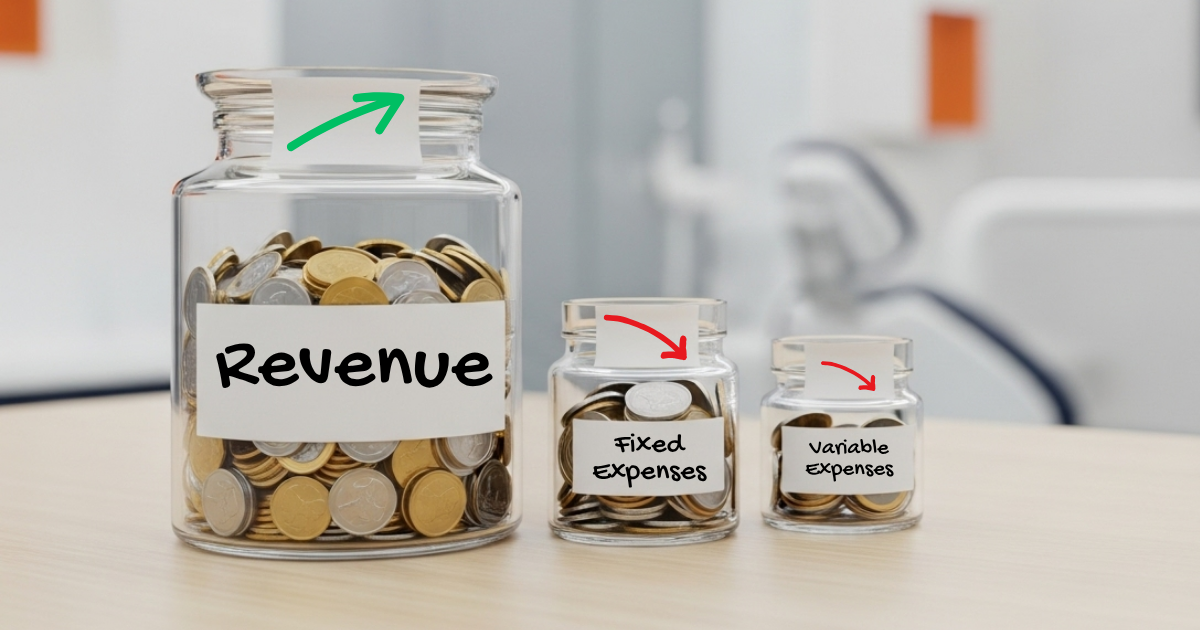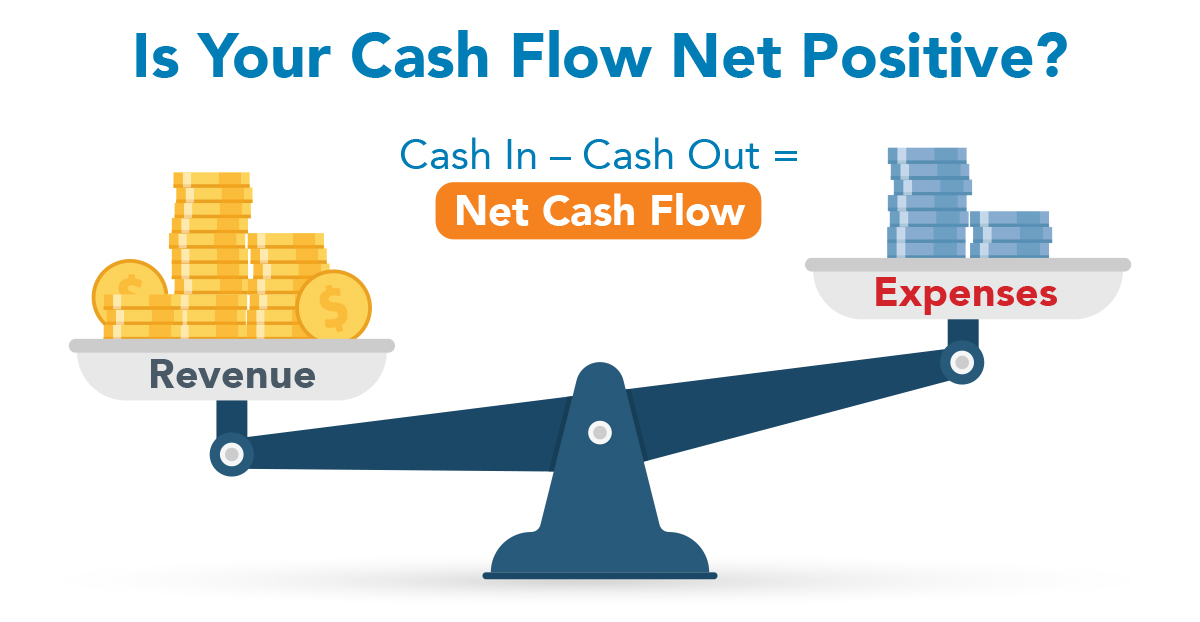
Whether you’re thinking about buying a practice, starting one from scratch, or joining an established office as a partner, understanding and planning your cash flow will be critical to your success. As Sean Howe, a Partner at MNP based in Langley, BC, noted during a recent CDSPI webinar: “no matter which path you choose, you need a plan that ensures you can meet your obligations, pay yourself, and keep your business healthy.”
In this article, we’ll break down key cash-flow considerations to help you move your practice forward with confidence.
Why Cash Flow Matters
Cash flow is the movement of money into and out of your practice. Positive cash flow means you have enough to cover expenses like rent, staff salaries, supplies, loan payments, and your own compensation. Without careful planning, even a practice that’s profitable on paper can run into trouble.
According to Sean Howe: “one of the biggest mistakes new owners make is underestimating how long it takes to reach consistent, reliable cash flow. They expect profitability within months, but the reality can be quite different, especially for a startup.”

The “Core Four” Pillars of a Cash Flow Plan
At its core, a realistic cash flow plan should focus on four core areas:
REVENUE SOURCES
Where the money will come from (patients, insurance payments, etc.)
FIXED COSTS
Rent, salaries, loan payments, insurance premiums.
VARIABLE COSTS
Supplies, lab fees, marketing, utilities.
PERSONAL LIVING EXPENSES
Your own financial needs while the practice ramps up.
A simple formula to remember: Cash In – Cash Out = Net Cash Flow. Your goal should be to keep this positive, or at least trending positive, while building a buffer for unexpected costs.
Cash Flow Planning When Buying a Practice
When buying an existing practice, you gain immediate access to its cash flow, but that doesn’t mean the work stops there. As Sean Howe put it, “you need to validate that the cash flow you’re buying is real and sustainable. That means looking at minimum three years of profit and loss statements, understanding patient retention rates, and confirming the overhead numbers make sense”.
Some of the key things you and your financial team should address include:
No immediate cash flow
Unlike a purchase, you’ll have months (or more) of expenses before any revenue comes in.
Detailed projections
Work with your advisors to create a monthly cash-flow forecast that includes rent during buildout, construction costs, equipment purchases, staff hiring, and marketing.
Personal reserves
Ensure you have 6 to 12 months of living expenses set aside to cover your needs until the practice supports you.
Sean Howe’s advice when buying an existing practice: “Your cash flow plan needs to reflect reality, not best-case scenarios.”
Cash Flow Planning When Starting a Dental Practice from Scratch
Starting from scratch is exciting, but it can also be risky. Dr. Aisling Whitaker, a Toronto-based general dentist with two successful startups under her belt, found that in her experience, “when you start a practice, it’s often 12 months from finding a site to seeing your first patient, and that’s after a year or more of planning. You need to be ready for a long runway.”
Some of the key factors to consider when it comes to cash flow with a startup:
Reviewing historic financials
Three years of tax returns, profit and loss statements, and accounts receivable reports can tell you a lot about cash flow stability.
Accounting for transition periods
Will the seller stay for a while? Will patients stay loyal? Build a conservative projection that factors in a possible initial dip in revenue.
Planning for debt service
Know your monthly loan payment and how it fits into your cash-in/cash-out picture.
As Sean Howe emphasized, “this is where having a realistic business plan is critical. You can’t just assume patients will show up on day one.”
Cash Flow Planning When Buying into an Established Dental Practice
Joining as an associate or partner brings fewer immediate cash-flow worries, but planning is still important. You’ll want to:
Understand compensation structure
Will you be on a guaranteed salary, or is income tied to production? If the latter, how quickly can you build your patient base?
Budget for variable income
If production drives pay, expect fluctuations — especially in the early months.
Clarify expenses
Are any costs shared, like malpractice insurance or marketing? Factor this into your personal financial plan.
Avoiding Common Pitfalls
Like most things in this world, buying, starting, or even joining a practice as a partner comes with risks and challenges for your bottom line. Cash flow traps that can trip up even financially savvy dentists include:
Underestimating time to break even
Whether buying or starting, assume things will take longer than planned.
Failing to plan for working capital
Set aside funds to cover operating expenses during slow periods or unexpected setbacks.
Leaving insurance requirements too late
Julie Berthiaume, Senior Insurance Advisor at CDSPI Advisory Services Inc. likes to remind her clients that "the banks will require life insurance as collateral for practice loans. If you leave this to the last minute, you can jeopardize your closing or start date."
Final Thoughts
Building a cash-flow plan isn’t just a financial exercise — it’s a roadmap that helps you sleep at night, knowing you can meet your obligations and focus on providing great care. Take time to build a detailed plan, validate your assumptions with trusted advisors, and review it regularly as your practice grows.
Matthew Wright, an Investment Planning Advisor at CDSPI Advisory Services Inc. noted: “Planning for practice ownership is a big part of the conversation I have with my clients as they're starting out in their dental careers. I ask them what their ownership goals are (and we quantify in advance how much money they are going to need) so we can create a plan to achieve them. The last thing we want is to be at the mercy of the market when the funds are needed most. It’s not about being pessimistic. It’s about being prepared.”
Need help building your cash flow plan? Our advisors can help you create projections tailored to your goals — whether you’re buying an existing practice, starting one from scratch, or becoming a partner at an established practice. Get started by speaking with an advisor.
The information contained in this article is of a general nature only and should not be considered as personal investment, tax, legal or financial advice. For specific advice about your situation, please consult with your financial advisor.